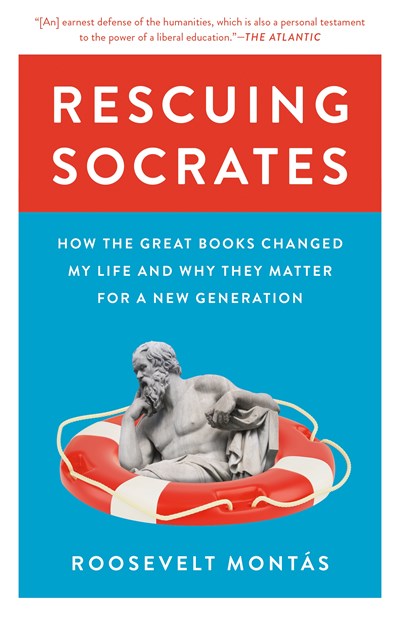A Dominican-born academic tells the story of how the Great Books transformed his life—and why they have the power to speak to people of all backgrounds
What is the value of a liberal education? Traditionally characterized by a rigorous engagement with the classics of Western thought and literature, this approach to education is all but extinct in American universities, replaced by flexible distribution requirements and ever-narrower academic specialization. Many academics attack the very idea of a Western canon as chauvinistic, while the general public increasingly doubts the value of the humanities. In Rescuing Socrates, Dominican-born American academic Roosevelt Montás tells the story of how a liberal education transformed his life, and offers an intimate account of the relevance of the Great Books today, especially to members of historically marginalized communities.
Montás emigrated from the Dominican Republic to Queens, New York, when he was twelve and encountered the Western classics as an undergraduate in Columbia University’s renowned Core Curriculum, one of America’s last remaining Great Books programs. The experience changed his life and determined his career—he went on to earn a PhD in English and comparative literature, serve as director of Columbia’s Center for the Core Curriculum, and start a Great Books program for low-income high school students who aspire to be the first in their families to attend college.
Weaving together memoir and literary reflection, Rescuing Socrates describes how four authors—Plato, Augustine, Freud, and Gandhi—had a profound impact on Montás’s life. In doing so, the book drives home what it’s like to experience a liberal education—and why it can still remake lives.

